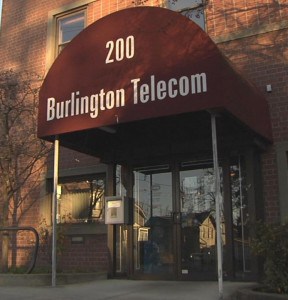 Why would a Delaware company holding several dozen patents — several formerly owned and controlled by a semiconductor manufacturer — suddenly decide to sue businesses that offer their customers access to Wi-Fi? Because that is where the money is.
Why would a Delaware company holding several dozen patents — several formerly owned and controlled by a semiconductor manufacturer — suddenly decide to sue businesses that offer their customers access to Wi-Fi? Because that is where the money is.
Innovatio IP Ventures, LLC is a patent holding company — one that today holds 31 patents, acquired mostly from Broadcom, that generally deal with “wireless local area network” technology most consumers know better as Wi-Fi. In reality, Innovatio doesn’t really innovate much of anything in the technology department. It has no products or services for sale. But it has managed to innovate what critics are calling a “major shakedown” with the help of its law firm to collect royalty payments from companies large and small who find it easier to settle the lawsuits than hire attorneys to defend them.
That may be precisely the business model companies like Innovatio have in mind.
The company is suing coffee shops, grocery stores, restaurant chains, and even individual hotels and motels where Wi-Fi is provided as a customer convenience. Among the defendants: Hyatt Corporation, Marriott Hotels, Wyndham Hotels and Resorts, Ramada Inn, Best Western, Days Inn, Super 8 Hotels, Travelodge, Caribou Coffee, Cosí and Panera Bread Co., and Meijer, Inc. Within those lawsuits, hundreds of individual business locations are accused of violating Innovatio’s Wi-Fi patent rights.
 But there is a way to make Innovatio, and their attorneys, go away. Agree to a quick, “one-time settlement” in the form of a “licensing payment” between $2,300 and $5,000 per infringing location.
But there is a way to make Innovatio, and their attorneys, go away. Agree to a quick, “one-time settlement” in the form of a “licensing payment” between $2,300 and $5,000 per infringing location.
That’s cheaper than putting an attorney on a retainer and spending several hours contemplating a defense strategy, a fact of life many businesses can’t afford to ignore.
Critics of these patent-holding companies call them “patent trolls” that exist solely to rake in settlement payments on broadly-written patents. Innovatio’s own lawsuits describe anyone who uses Wi-Fi as a potential violator. It’s a new tactic for patent attorneys who more commonly chase equipment manufacturers and vendors, not the end users of the technology. Innovatio has set its sights on smaller companies offering Wi-Fi services, perhaps because some of America’s largest equipment manufacturers, Cisco and Motorola, have deep enough pockets to fight back in court.
Who has even fewer resources to defend themselves against a patent infringement lawsuit mill? Individual consumers, who technically are also violating Innovatio’s patents just by running a wireless network inside their home. Innovatio defines that as patent infringement themselves, but benevolently suggests it will not sue ordinary consumers “at this stage” of Innovatio’s “systematic campaign,” reports The Patent Examiner:
“Innovatio has made a strategic and business judgment at this stage that it doesn’t intend to pursue [lawsuits on the basis of] residential use of WiFi,” said Matthew McAndrews, the lawyer representing Innovatio in the case. (The law firm’s offices in downtown Chicago are located about five blocks away from Innovatio’s office. The U.S. Patent and Trademark Office shows another address for Innovatio, in a house at the end of a cul-de-sac in Ladera Ranch, Calif.)
As if to assure anyone who owns a laptop, smartphone or tablet that they’re not in danger of finding themselves in the company’s cross hairs, McAndrews added that he doesn’t “perceive” Innovatio’s litigation strategy changing. McAndrews did not respond to queries about who is behind Innovatio.
But that may not last forever:
McAndrews acknowledged the ubiquity of wireless Internet – likening it to a fundamental utility like gas or electricity – but offered a different perspective on the terms of its use. Ultimately, he said, Innovatio’s “plan is to license this portfolio to the fullest extent possible. That would include anyone who’s wireless networking.”


 Subscribe
Subscribe






